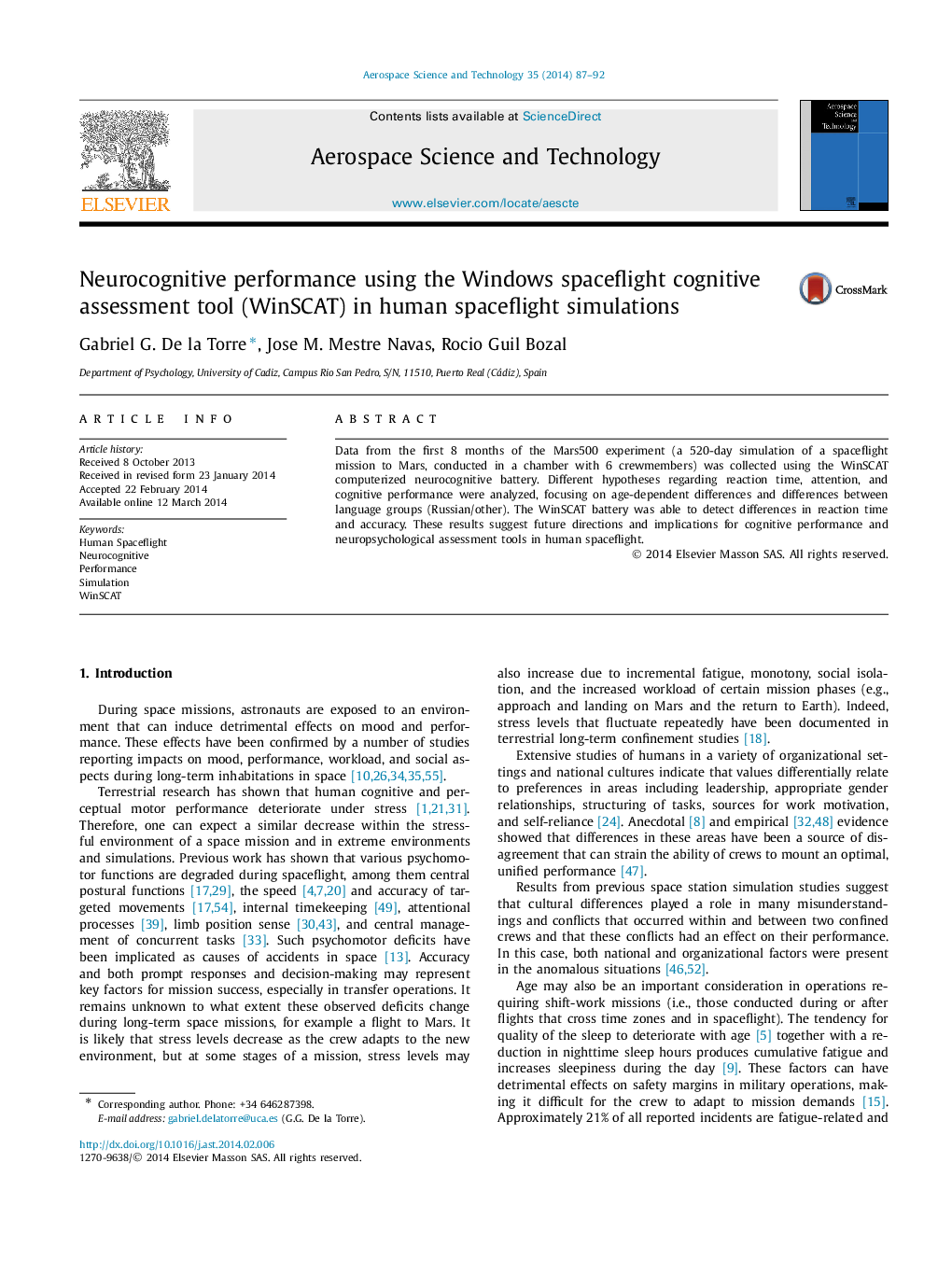| Article ID | Journal | Published Year | Pages | File Type |
|---|---|---|---|---|
| 8059046 | Aerospace Science and Technology | 2014 | 6 Pages |
Abstract
Data from the first 8 months of the Mars500 experiment (a 520-day simulation of a spaceflight mission to Mars, conducted in a chamber with 6 crewmembers) was collected using the WinSCAT computerized neurocognitive battery. Different hypotheses regarding reaction time, attention, and cognitive performance were analyzed, focusing on age-dependent differences and differences between language groups (Russian/other). The WinSCAT battery was able to detect differences in reaction time and accuracy. These results suggest future directions and implications for cognitive performance and neuropsychological assessment tools in human spaceflight.
Related Topics
Physical Sciences and Engineering
Engineering
Aerospace Engineering
Authors
Gabriel G. De la Torre, Jose M. Mestre Navas, Rocio Guil Bozal,
